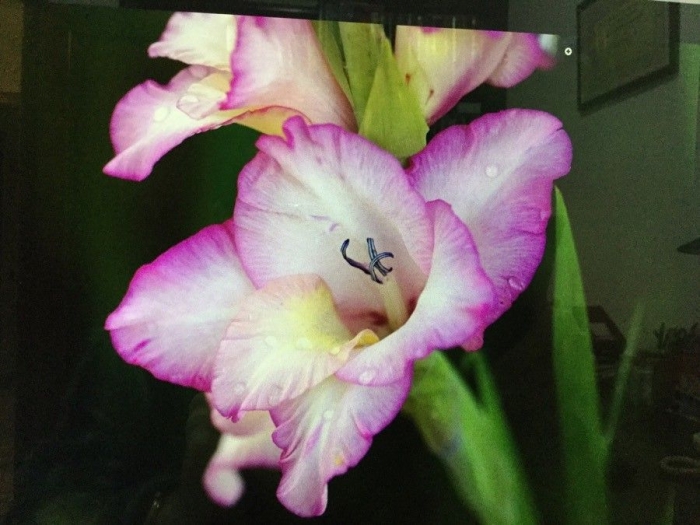Eastern Gladiolus
(Gladiolus communis)
Eastern Gladiolus (Gladiolus communis)
/
/

Javier Ibañez
CC BY-SA 4.0
Image By:
Javier Ibañez
Recorded By:
Copyright:
CC BY-SA 4.0
Copyright Notice:
Photo by: Javier Ibañez | License Type: CC BY-SA 4.0 | License URL: https://creativecommons.org/licenses/by-sa/4.0/ | Attribution: Javier Ibañez (cc-by-sa) | Rights Holder: Javier Ibañez | Publisher: PlantNet | Date Created: 2020-03-10T19:30:52.808Z | Title: Gladiolus communis L.: flower | Notes: |

















































Estimated Native Range
Summary
Gladiolus communis, commonly known as Eastern Gladiolus, is a deciduous perennial herb native to the Mediterranean region, Southwest Asia, and North Africa. It typically grows to a height of 1-2 feet (0.3-0.6 meters) and a width of 0.8-2 feet (0.2-0.6 meters). The plant features sword-shaped leaves and tall flower spikes with funnel-shaped blossoms that come in shades of pink, purple, red, and brown, blooming in the summer months. The flowers are arranged in a double row along the stem and are known for their striking appearance.
Eastern Gladiolus is valued for its showy flowers and is commonly used in cut flower arrangements. It is also a popular choice for borders and container gardening. In cultivation, it requires full sun exposure to thrive and prefers well-drained soils, although it can tolerate a range of soil types. Regular watering is important, especially during the growing season. While generally easy to maintain, it can be susceptible to thrips and fungal diseases such as botrytis. To prevent these issues, good air circulation and avoiding overhead watering are recommended. After flowering, corms can be lifted and stored over winter in colder climates.CC BY-SA 4.0
Eastern Gladiolus is valued for its showy flowers and is commonly used in cut flower arrangements. It is also a popular choice for borders and container gardening. In cultivation, it requires full sun exposure to thrive and prefers well-drained soils, although it can tolerate a range of soil types. Regular watering is important, especially during the growing season. While generally easy to maintain, it can be susceptible to thrips and fungal diseases such as botrytis. To prevent these issues, good air circulation and avoiding overhead watering are recommended. After flowering, corms can be lifted and stored over winter in colder climates.CC BY-SA 4.0
Plant Description
- Plant Type: Herb
- Height: 1-2 feet
- Width: 0.8-1.5 feet
- Growth Rate: Moderate
- Flower Color: Orange, Pink, Purple, Red, White
- Flowering Season: Summer
- Leaf Retention: Deciduous
Growth Requirements
- Sun: Full Sun
- Water: Medium
- Drainage: Medium
Common Uses
Bee Garden, Bird Garden, Butterfly Garden, Deer Resistant, Drought Tolerant, Hummingbird Garden, Potted Plant, Salt Tolerant, Showy Flowers
Natural Habitat
Mediterranean region, Southwest Asia, and North Africa
Other Names
Common Names: Cornflag, Common Corn-Flag, Gewöhnliche Siegwurz, Småblommig Sabellilja
Scientific Names: , Gladiolus communis, Gladiolus reuteri, Gladiolus illyricus subsp. reuteri, Gladiolus lannesii, Gladiolus byzantinus var. lutarius, Gladiolus hanru, Gladiolus illyricus var. reuteri, Gladiolus byzantinus var. numidicus, Gladiolus collinus
GBIF Accepted Name: Gladiolus communis L.